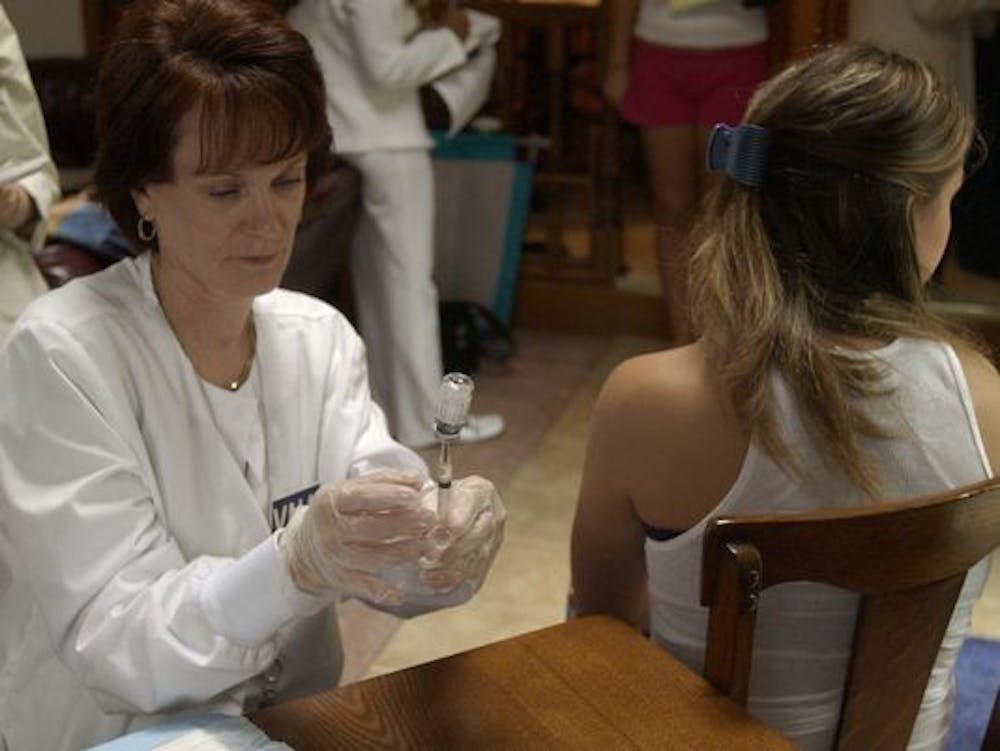Ball State, in response to a bill passed in Indiana government last year, has followed other Indiana universities in requiring incoming students to be vaccinated for meningitis B.
During the 2017 Indiana legislative session, House Bill 1069, which adds meningitis B to the required list of immunizations for higher education students, was passed.
Purdue University and Indiana University made statements earlier saying they will require meningitis B vaccinations for incoming students. Ball State said on Tuesday it would also now apply these requirements.
Alan Hargrave, associate vice president for student affairs and director of housing and residence life, said meningitis is something that will occasionally break out in areas where there is a large number of people in close proximity.
“We certainly want to do everything we can to prevent that,” Hargrave said. “We want to make sure that no one has slipped through the cracks when they come here.”
Meningitis is an infection that affects the membranes surrounding the brain and spinal cord. If untreated, it can lead to complications including brain damage, seizures, amputations, nerve damage and even lead to death within days of the infection. It mainly affects newborns and babies, but it can also rarely affect teens and young adults.
Lisa Robertson, executive director of the Indiana Immunization Coalition, said even though there are not very many cases of meningitis each year, when it does happen, the spread of the disease is quick and dangerous.
In the past few years, despite the rarity, meningitis B has popped up at various college campuses across the country, several of the occurrences leading to the death of some students.
“The students are living on campus. They’re at risk for these diseases,” Robertson said.
Meningitis is contagious, Robertson said, and is spread through normal behavior like sharing water bottles or living in close quarters.
The Centers for Disease Control and Prevention recommends a vaccination that protects against meningitis A, C, W and Y for adolescents 11 to 12-years-old, and then a booster at 16-years-old. For meningitis B, the CDC recommends people 16 to 18-years-old receive a vaccination, along with other doses in the future.
According to Ball State’s admission requirements, domestic students must provide proof of two doses of meningitis B vaccines if the student is 23 years or younger.
Before HB 1069, the state did require vaccinations for meningitis strains A, C, W and Y. Recently, a vaccine for Meningitis B was developed. Robertson said IU, Purdue and Ball State are some of the first in the country to make the importance of meningitis B vaccinations a point in Indiana.
“They are literally leading the country in this initiative,” Robertson said.
According to a press release, Ball State was presented an award Dec. 13 from the Indiana State Health Commissioner for its meningitis B vaccination requirements.
“The Ball State Health Center is committed to promoting the health of all Ball State students,” said Dr. William Betts, director of counseling and health services, in the press release.
Contact Andrew Harp with comments at adharp@bsu.edu or on Twitter @adharp24.





